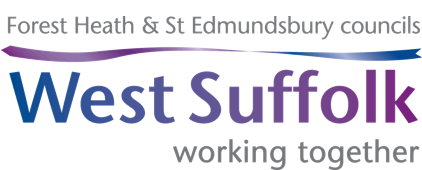West Suffolk Council is to stop using Glyphosate, the broad spectrum weedkiller, from April 2023.
West Suffolk Council is to stop the general use of Glyphosate, the broad-spectrum weedkiller, from April 2023 to help protect wildlife and the environment.
The move follows the council’s commitment in its Environment and Climate Change Action Plan, to phase out the use of glyphosate which has been linked to harming wildlife. The move is also after exhaustive trials and inspections of alternative products and management approaches to replace Glyphosate with another effective treatment.
The Council will now be asked to look at how to budget for this extra £20,000 burden.
Glyphosate is a non-selective weed killer, meaning it will remove all vegetation it is applied to. Whilst Glyphosate is widely used and especially useful on more hardy species, it has only been used sparingly by the council.
While the use of the alternative will be most effective on tender young weeds, it will mean some weeds will reappear and some treated areas may not look as neat as previously.
However, this also follows the Council’s drive to encourage communities to come forward with suggested areas that can be left a little more wild to help local biodiversity. Parish and Town Councils have previously been asked to put forward grassed areas that their local communities would support being managed in a different way to being regularly cut short.
West Suffolk Council manages many acres of open space year-round, including sites it owns, such as its six Green Flag status parks, nature reserves and recreation spaces. It also maintains open space on behalf of parishes, sports clubs and housing associations.
In 2019, the council declared a climate and biodiversity emergency and created an Environment and Climate Change Action Plan to work towards being carbon net zero by 2030.
Cllr Jo Rayner, Deputy Leader and Cabinet member for Leisure, Heritage and Community Hubs at West Suffolk Council said,
I am pleased that we have an end date for using Glyphosate. This has a cost, as the alternative product is more expensive. But having the action plan has given us ways of managing the impact of the change and created new opportunities for supporting the natural environment.
‘Since we declared a biodiversity emergency in 2019, we have been working on several projects to enhance nature. For example, with the volunteers at Nowton Park we’ve created a Community Woodland Garden that provides habitat for insects, amphibians, birds and small mammals. And we’re working with the Bury Water Meadows Group, planting trees and restoring habitat.
‘Many other local projects have been supported through councillor locality budgets. If there is somewhere you’d like to nominate as a wildflower area, do please contact your West Suffolk councillor. With our ecosystems already feeling the effects of climate change, removing glyphosate is a step in the right direction and should bring many other benefits to our wildlife.’
An exception will be made for treatment of some invasive species such as Japanese Knotweed and Giant Hogweed, which are a serious threat to biodiversity. In this case, the Glyphosate will be safely injected directly into the plants. Where safety, access and public health are affected, the option of using plugs safely buried in tree stumps, to prevent regrowth, could be considered.

